Why Is Creatine So Expensive: Is There a Creatine Shortage?
Author:
Unlock your full potential by engaging with our experts and community! Have questions about your fitness journey or looking for expert advice on weightlifting techniques? Don’t hesitate — leave a comment below and Jacek Szymanowski will provide a personalized answer and insights to help you reach your goals.
Torokhtiy is reader-supported. Some links are affiliate links, and we may earn a commission at no extra cost to you. See our disclosure page for details.
If you’ve recently noticed higher creatine prices, you may be wondering “Why is creatine so expensive?” In this article, we’ll be covering why creatine is more expensive now, how much creatine costs, and how you can save some money while taking it. So, if you’re looking to take creatine on a budget, keep reading to find out how.
Why is Creatine so Expensive? – There was a recent creatine shortage that led to a price increase. However, you can still get creatine for under $0.50 a serving. You can make the supplement even more budget-friendly by buying from cheaper brands, buying in bulk, and taking smaller servings.
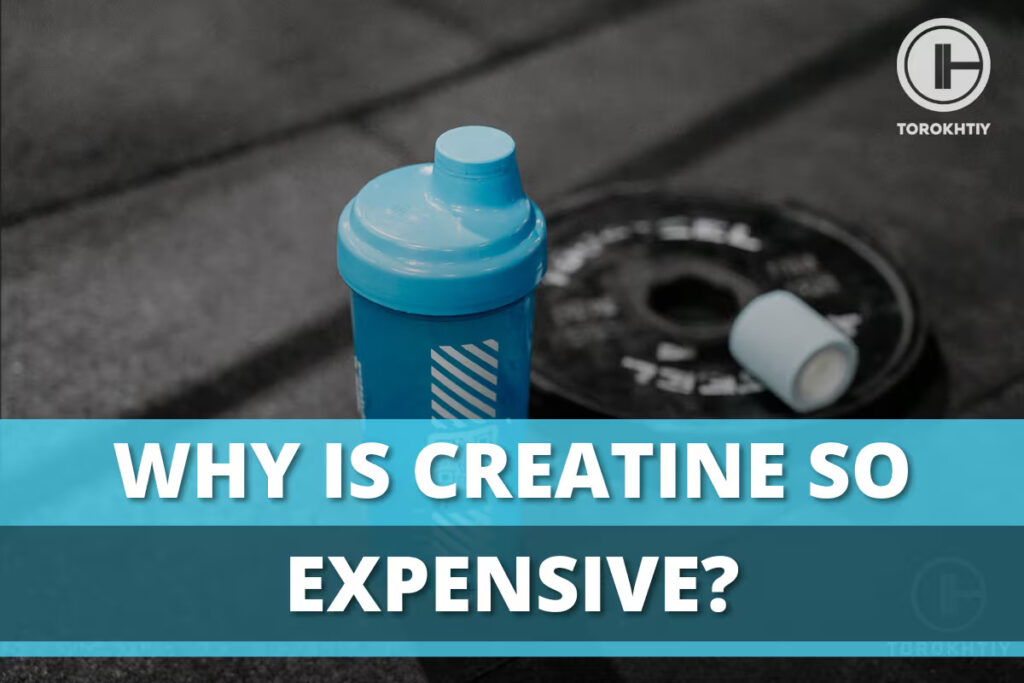
Why Is Creatine So Expensive?
If you’ve been buying creatine for a while and recently noticed higher prices, you may have been asking yourself “Why did creatine get so expensive?”
Towards the end of the pandemic, there was a noticeable creatine price increase due to increased demand, which led to a minor creatine shortage. While things have leveled out slightly, creatine prices have remained somewhat elevated over the last several years.
However, even with this price increase, creatine is still one of the cheapest supplements around. Especially considering all its genuine, science-backed benefits, creatine offers some of the best value for money out of any supplement you could buy.
Using Naked Nutrition’s creatine monohydrate as an example, you can still get high-quality creatine for only $0.21 per serving. Compare this to protein powder and pre-workout which are both regularly sold for $1-2 per serving, and you can see that creatine is not so expensive after all.
This is doubly true when you look at all the benefits it provides. Once your muscles are fully saturated with creatine, you can expect numerous benefits ranging from improved high-intensity exercise performance, reduced fatigue during workouts, and better recovery in between your workouts.
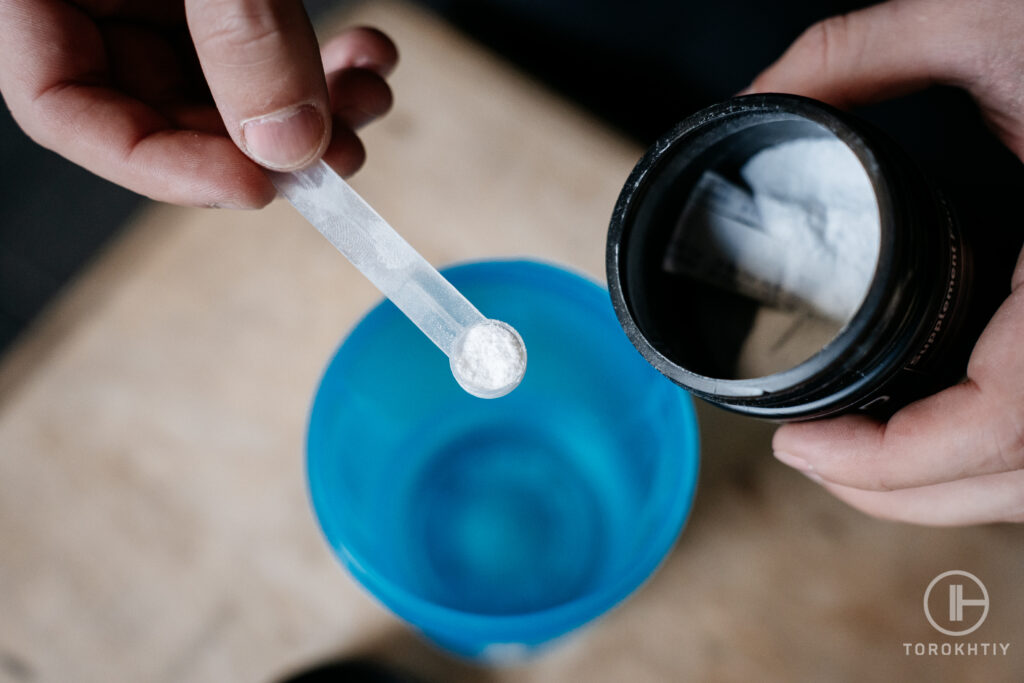
Creatine monohydrate is one of the most well-researched and widely used supplements available, which cannot be said for many more expensive supplements.
It should be noted that if you’re buying an alternative form of creatine that isn’t monohydrate (Creatine HCl, Creatine Magnesium Chelate, etc.), you may be paying significantly more. However, these products don’t appear to offer any significant advantages over monohydrate in terms of effectiveness.
They are essentially marketing gimmicks used to charge more for the same basic product. So, if you think creatine is expensive, make sure you’re looking at monohydrate instead of any alternatives.
So, while creatine may seem expensive at first, you’ll be paying for a supplement that will have significant effects on your training. Even with recent price increases, creatine is still one of the most budget-friendly supplements around.
How To Significantly Save Money When Using Creatine?
So, while creatine is fairly cheap, there are several tricks you can use to save some extra money when buying this supplement. Here they are covered in more detail.
1. Choose the Most Affordable Creatine From Reputable Brands
By shopping around and not buying the first creatine you find, you can stand to save a good amount of money. Prices between brands can fluctuate greatly, so be sure you’re looking at multiple products before making a decision.
With this being said, you shouldn’t just buy the cheapest creatine you can find. Be sure it’s coming from a reputable brand that tests their products and delivers consistently high-quality supplements. If you’re buying lower-quality creatine, you may be risking the presence of contaminants like heavy metals in the supplement.
This is why it’s crucial to only buy cheap creatine from affordable brands – that ideally test for contaminants, like Naked Nutrition.
Also, as covered above, you should always stick to monohydrate over any alternative forms of creatine. It is the most well-researched and affordable form of creatine available, making it the only form of creatine worth buying.
2. Buy the Largest Available Package
Another easy way to save money on creatine is to buy in bulk. Supplement companies will typically offer a sizable discount per serving when buying the largest package they have available. Especially if you’re planning on taking creatine indefinitely, buying in bulk is a great way to save some money.

Of course, if you can’t afford to buy in bulk, there’s nothing wrong with buying a smaller package size. However, if you’re looking to save money over the long term, then keep in mind that buying the largest package available is the way to go.
3. Take Creatine Without a Loading Phase
If you’re unfamiliar with the term “loading phase”, it refers to taking high doses of creatine around 20g a day to saturate your muscles quicker than you would with a standard dose of 3-5g a day. While a loading phase is effective in quickly saturating your creatine stores, it will only speed up the effects by a couple of weeks.
So, by skipping the loading phase and just taking a standard dose, your creatine will last a bit longer, although your muscles will take a little longer to saturate. All things considered, it’s fairly even so it’s up to you.
creatine dosage calculator
Loading Phase:
Maintenance Phase:
4. Take Creatine at the Lower End of the Recommended Amount (3-4G per Day)
You can also save a bit of money by taking a slightly lower dose of creatine every day. While the recommended daily dose for most people is 3-5g a day, most people will take a standard 5g serving every day without thinking about it.
Especially if you’re lighter, taking 3-4g a day will still be enough to keep your muscles fully saturated. While it may not seem significant, you’ll be getting a free serving every couple of days using this strategy instead of taking 5g.
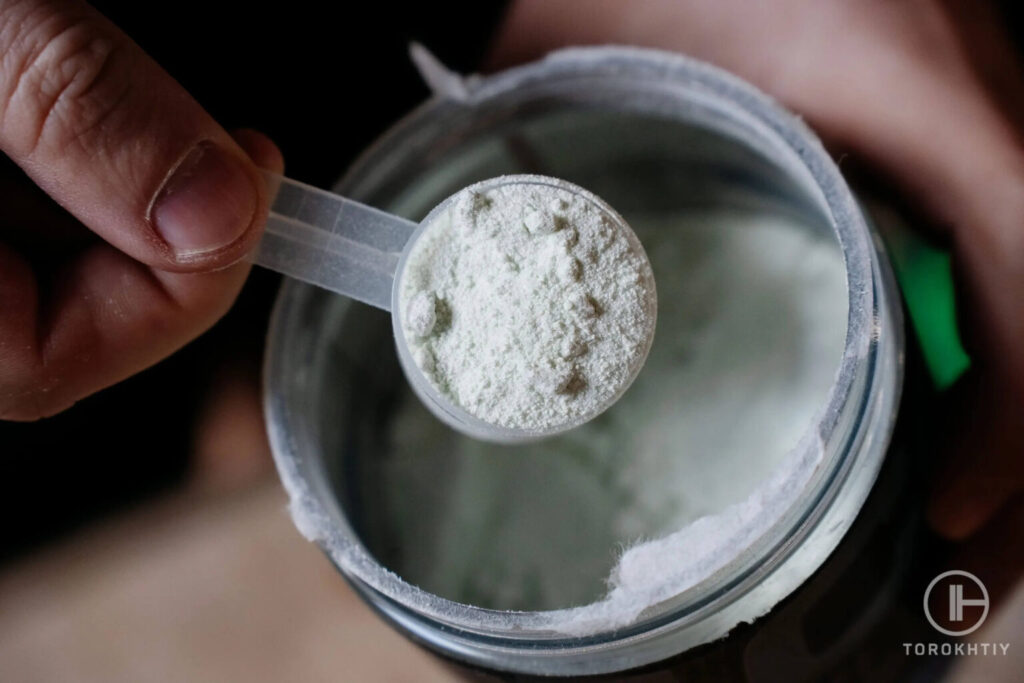
It should be noted that heavier people will likely need more than a standard 3-5g dose to keep their creatine stores fully saturated because they can store more creatine in their body. Also, if you’re not getting much dietary creatine in, you may have slightly lower creatine levels than the average person.
In this case, taking a 3-4g dose may not be the best idea. If you have a high body weight, or don’t eat meat, you will probably want to take 5g or more every day to maximize results.
5. Best Budget Creatine – Naked Creatine Monohydrate Powder
Naked Creatine Monohydrate
- Form: Powder
- Servings per Container: 200
- Type: Monohydrate
- Suitable for Vegans: Yes
- Other Ingredients: None
- Price per Serving (5g): $0.3
- Company Founded: 2014
- Recommended by Athletes: Kenzie Mariano, Daniel Victor
If you’re looking to buy creatine on a budget, our recommendation is Naked Nutrition’s Creatine Monohydrate.
While they do have a 500g option available as well, we’ll be looking at the 1kg option as it offers the best value for money. Each serving is a standard 5g scoop, meaning you’ll be getting 200 servings in total. This will stretch even further if you plan on taking a slightly smaller dose of 3-4g a day instead.
Despite being a budget-friendly supplement, Naked still offers a very high-quality product. There are no additives or extra ingredients, meaning you’ll be getting 100% creatine monohydrate for your money. They also test all their products for contaminants like heavy metals and allergens like soy and gluten.
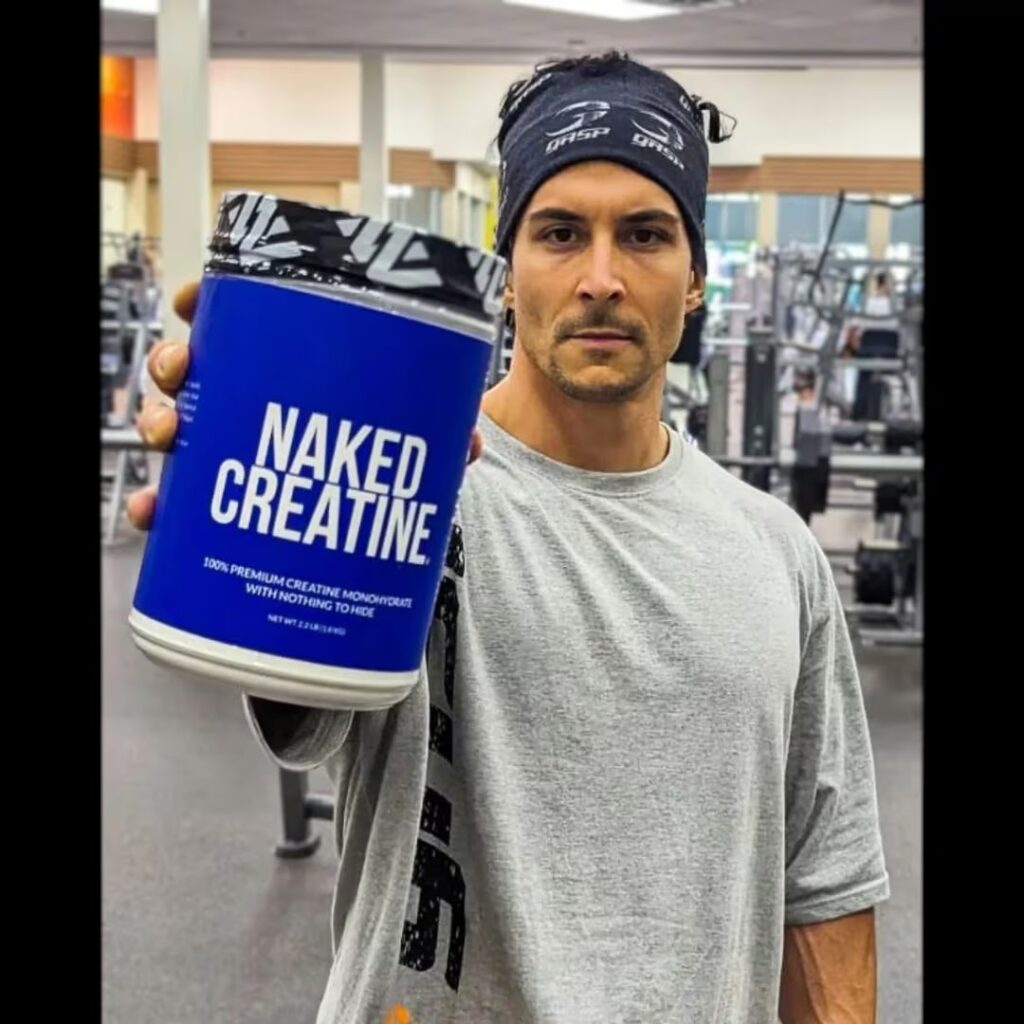
So, while many cheap supplement brands offer subpar products, Naked is a clear exception. Despite being a budget-friendly supplement, Naked still offers a very high-quality product. There are no additives or extra ingredients, meaning you’ll be getting 100% creatine monohydrate for your money.
They also test all their products for contaminants like heavy metals and allergens like soy and gluten. So, while many cheap supplement brands offer subpar products, Naked is a clear exception.
In terms of price, you can expect to pay $0.21 per serving, which is some of the cheapest creatine available on the market. So, if you’re looking for a great budget-friendly creatine powder, you’ll be hard-pressed to find a better option than Naked
of creatine as a young athlete heavily involved in competitive sports and exercise may reduce the risk of injury when taken under the correct supervision.
FAQ
Why Is Creatine So Expensive?
While there was a spike in creatine prices as people returned to the gym after the pandemic, its price tag never reached unreasonably high levels. In terms of this creatine monohydrate shortage, things do appear to have evened out somewhat over the last year, with there still being plenty of creatine available at an affordable price.
Do You Need Expensive Creatine?
No, the most expensive forms of creatine are often alternatives to monohydrate such as Creatine HCl or Kre-Alkalyn. Whatever the name is, the vast majority of creatine alternatives are simply marketing schemes designed to charge more for the same basic product as monohydrate.
As shown by Naked Nutrition, you can easily find high-quality creatine monohydrate for a very low price.
Is It Ok To Take Creatine Forever?
Yes, there is plenty of research to suggest creatine is safe to take over a long time frame. Because creatine is a saturation supplement, it will only produce noticeable effects when your body’s creatine stores are full.
This means you should take creatine indefinitely to keep these stores filled, and to continue experiencing the benefits of this supplement.
Conclusion
Overall, while creatine may seem expensive at first, when comparing its price and effectiveness to other supplements like protein powder and pre-workout, you can see it offers some of the best value for money out of any supplement available.
If you’re looking for a high-quality, budget-friendly creatine supplement, look no further than Naked Nutrition’s Creatine Monohydrate. This product is tested for contaminants, contains no additives, and is only around $0.21 per serving, making it an all-around great pick.
How do you feel about the price of creatine? Do you think this supplement is worth the money? Let us know your thoughts in the comments below!
Also read:
- Types of Creatine
- How Much Creatine Hcl Should I Take
- Is Creatine Good for Cutting
- What Happens if You Miss a Day of Creatine
- Can You Take Creatine Without Working Out
- Does Creatine Make You Stronger
- Glutamine vs Creatine
- Creatine Monohydrate vs Creatine Nitrate
- Electrolyte Supplements Guide
References:
- Richard B Kreider, “International Society of Sports Nutrition position stand: safety and efficacy of creatine supplementation in exercise, sport, and medicine”, NCBI, https://pubmed.ncbi.nlm.nih.gov/28615996/
- Guillermo Escalante, “Analysis of the efficacy, safety, and cost of alternative forms of creatine available for purchase on Amazon.com: are label claims supported by science?”, ScienceDirect, https://www.sciencedirect.com/science/article/pii/S2405844022034016
- Elisabeth Anderson, “In the news – Heavy Metals in Food”, Michigan State University, https://www.canr.msu.edu/news/heavy-metals-in-food
- Sabrina Moret, “Levels of creatine, organic contaminants and heavy metals in creatine dietary supplements”, ScienceDirect, https://www.sciencedirect.com/science/article/abs/pii/S0308814610016377
- Ashley Green, “Expert: Creatine’s Impact Goes Far Beyond The Weight Room”, Texas-A&M-Today, https://today.tamu.edu/2017/06/19/expert-creatines-impact-goes-far-beyond-the-weight-room/
- Photos made by Torokhtiy Media Team.
Why Trust Us?
With over 20 years in Olympic weightlifting, strength training, nutrition coaching, and general fitness our team does its best to provide the audience with ultimate support and meet the needs and requirements of advanced athletes and professional lifters, as well as people who strive to open new opportunities and develop their physical capabilities with us.
By trusting the recommendations of our certified experts in coaching, nutrition, and sports training programming, as well as scientific consultants, and physiotherapists, we provide you with thorough, well-considered, and scientifically proven content. All the information given in the articles concerning workout programming, separate exercises, and athletic performance, in general, is based on verified data.
The product testing process is described in more detail here.
Author: Jacek Szymanowski
Certified Nutritionist,
M.Sc.Eng. Biotechnology
Performance Architect,
Strength and Conditioning Specialist
With over 30 years of fighting experience, specialization in nutrition coaching for athletes, and expertise in metabolic health and dietary strategies, Jacek offers a comprehensive approach to optimizing your performance and well-being. Backed by a Master of Science degree in Biotechnology, Jacek remains at the forefront of scientific advancements, ensuring that his coaching is always evidence-based and up-to-date.



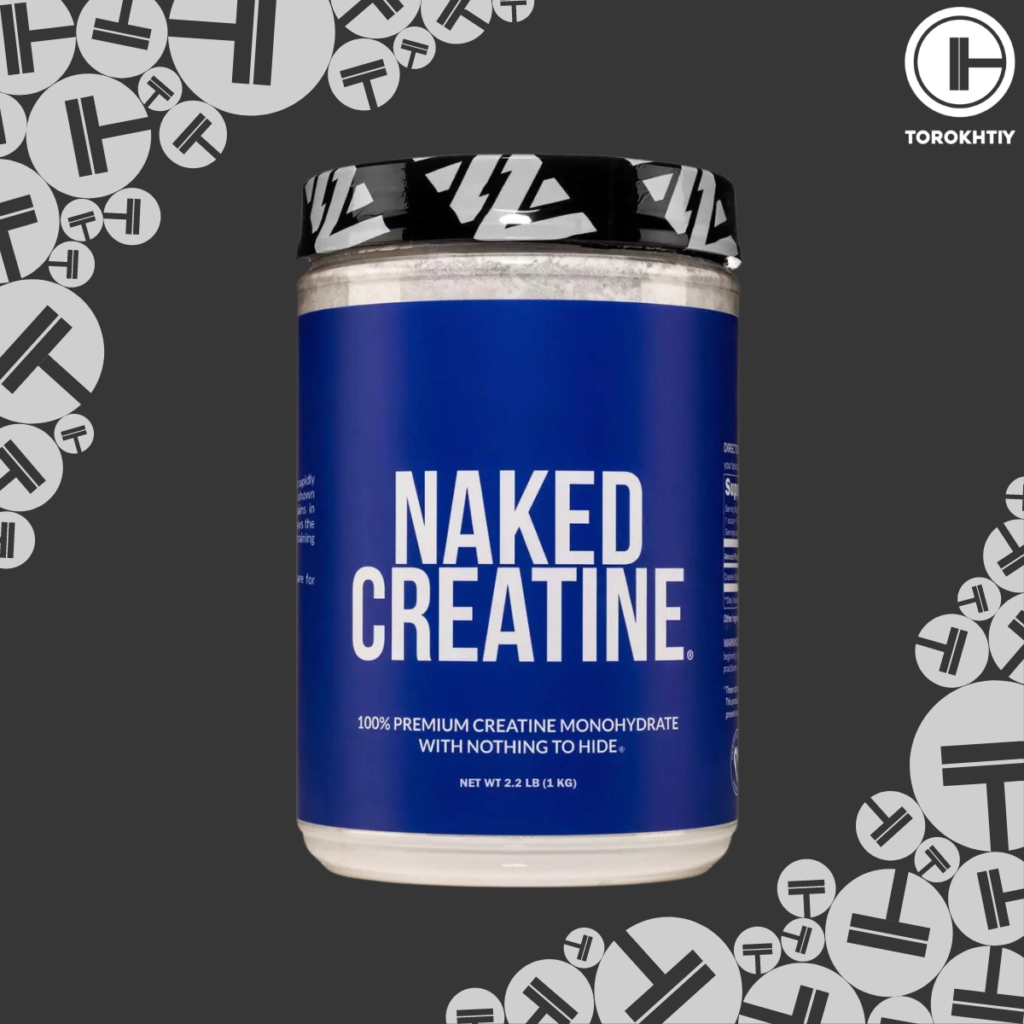
Still have questions after reading our article? Unlock your full potential by engaging with our experts and community! Don’t hesitate — leave a comment below and Jacek Szymanowski will provide a personalized answer and insights to help you reach your goals.